

Learning and connecting
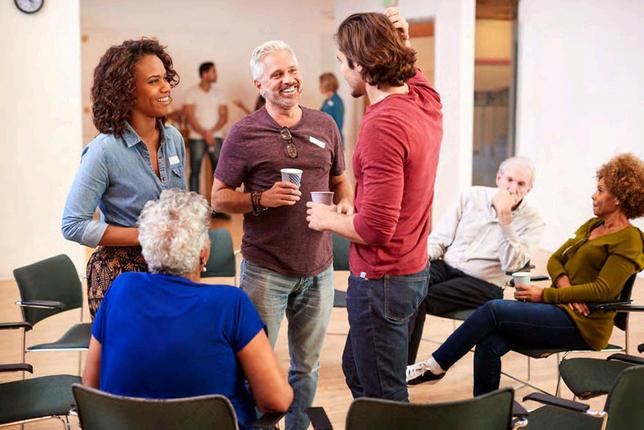
Compassionate communities change lives



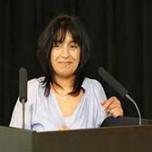
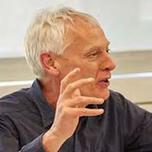



Julian Abel Director

Allan Kellehear, Associate Director Catherine Millington-Sanders, Associate Director
We believe in a world where people’s natural gifts of compassion, togetherness and equity are recognised as more powerful than medicine alone
Manjula Patel, Trustee
Ed Straw, Chair
Steve Crabb Trustee
Only 5% of time spent living with a serious illness, dying and grieving is spent with healthcare professionals. We focus on the 95% of the time that we spend with our neighbours, colleagues, family and friends. We also support health and care professionals to recognise and embrace the power of community, transforming how care is given during these challenging times in people’s lives.
Emma Hodges Development Director
We provide training, consultancy and support for health care professionals, community organisations, citizens and workplaces
Faye Gillett Coordinator
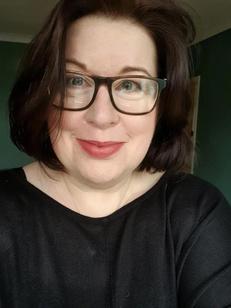
Jenni Fryer Stories & PR Coordinator
Find out more: www.compassionate-communitiesuk.com
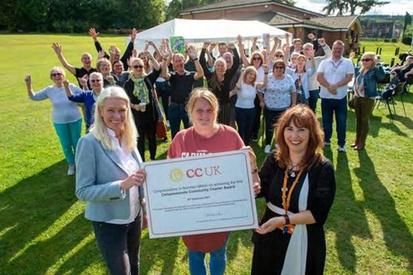
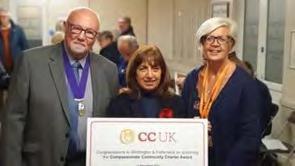
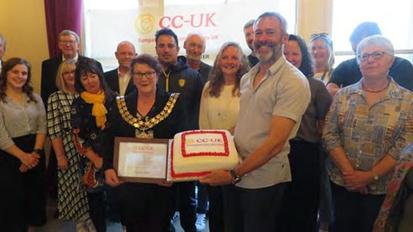
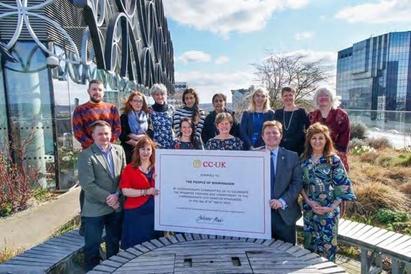

Compassionate city foundation programme
This seven-week programme is the starting point for places looking to implement the Compassionate City Charter or broaden their knowledge to benefit their community.
Each weekly 1.5-hour session is a balance of input and discussion bringing together a the place-based team who go on a learning journey together.
Places that have been through this programme finish with practical next steps approach to ready them for Compassionate City Charter Accreditation which includes 13 standards that focus on public health palliative care.
Accreditation standards include celebrating the existing compassion initiatives in the community, senior commitment to recognise a community development approach and an action plan for the next steps to build upon strengths, embed, and grow new ideas from the community.
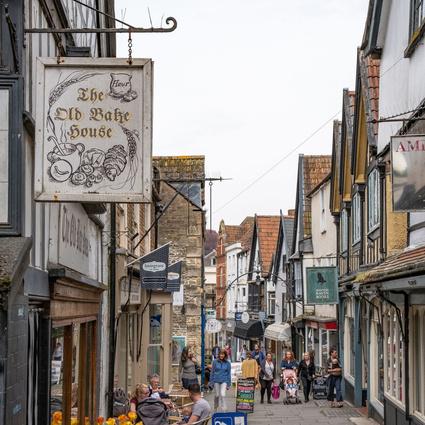

“The town that cured loneliness”
Learn how Frome in Somerset became the town that cured loneliness and transformed health and care
The basics, what are we talking about? Biology of compassion
What matters most? Circles of care and the role of groups
Compassionate communities and community development - power relationships
Changes in primary care – the hub model, education for all
Community connectors and resource directories
Tying it all together, systems thinking, reliability, measurement, quality improvement methodology
Community of practice
Find out more:
www.compassionatecommunitiesuk.com or email info@compassionatecommunitiesuk.co.uk
The course will be delivered by Dr Julian Abel and Dr Frances da Cunha, who runs the West Mendip part of the Frome Model and has been using the Frome Model for 6 years now.
Teaching Team

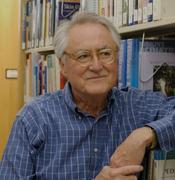




Dr Julian Abel
Public health palliative care for specialist registrars
Professor Allan Kellehear
Dr Libby Sallnow
Dr Joseph Sawyer
Dr Kerrie Noonan
Find out more: www.compassionatecommunitiesuk.com or email info@compassionatecommunitiesuk.co.uk
Public health palliative care is now part of specialist training for all palliative medicine consultants. However, for many healthcare professionals, including doctors, this essential training hasn’t been part of their previous training or practice.
With the new Oxford Text Book in Public Health Palliative Care providing a strong evidence base, this development programme provides an opportunity for specialist registrars to take part in an interactive discussion with leaders in the field.
Content includes:
The case for Public Health Palliative Care
Basic concepts and theory
Basic practice methods
Population-based approaches
Evidence-based research
Education and training

Find out more: www.compassionatecommunitiesuk.com or email info@compassionatecommunitiesuk.co.uk

Public health palliative care for multi-disciplinary teams
The multi-disciplinary team (MDT) role is key in palliative care and includes many health professionals, including doctors, nurses, social workers, specialists and therapists.
This course combines specialist training with a public health approach and includes:
The case for public health palliative care
Basic concepts and theory
Basic practice methods
Population-based approaches
Evidence base
Education and training
Individual and team-based programmes are available.
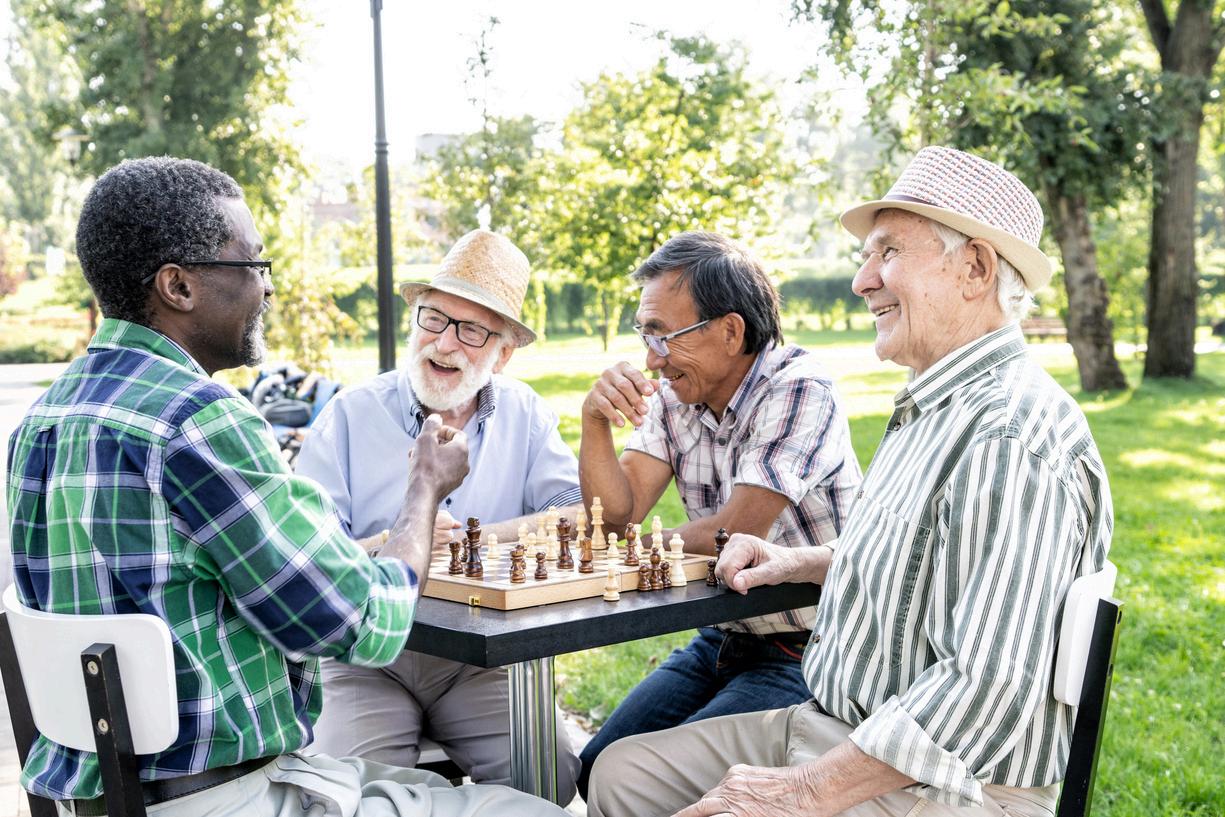

Citizen connectors
Everywhere there are people, there are connectors. They might be hairdressers, publicans or taxi drivers. They may be in schools, workplaces and faith groups. Everyone qualifies.
Citizen Connectors are people who know what is going on in their community and want to be more comfortable in holding supportive conversations that might help the person they are chatting with.
Connectors may suggest the person tries out a walking group, lunch club or bereavement help point.
Our Citizen Connector programme is a two hour webinar followed by the opportunity to be part of an ongoing virtual community.
This training can be part of a broader placebased strategy to reduce loneliness and increase community sources of support.
Find out more: www.compassionatecommunitiesuk.com or email info@compassionatecommunitiesuk.co.uk

Find out more: www.compassionatecommunitiesuk.com or email info@compassionatecommunitiesuk.co.uk

Public health palliative care implementation programme for hospices
Many hospices include aspects of public health palliative care as part of their operational strategy. However, this work is often at the fringes as it competes with family support and income generation priorities.
In keeping with a growing body of evidence, Public Health Palliative Care for Hospices aims to align public health palliative care with enhanced specialized services.
Integrating public health palliative care approach into a hospice’s strategy helps hospices maximize care quality for patients, families and communities.
This programme includes skills and practical service redesign workshops over several weeks. It is designed to be support to a single hospice team.

Find out more: www.compassionatecommunitiesuk.com or email info@compassionatecommunitiesuk.co.uk

A compassionate community approach to bereavement
This three part course is designed to support people working in health, care and community organisations to consider their approach to bereavement. The course references grief theory, different models and approaches and NICE guidelines.
Session 1: - Our own experiences, advent of bereavement support – bio medical model evolution, dominance of what is wrong – focus on few. What other models tell us sociological perspectives, connecting – how society has changed (expression or not) – types of bereavement support – letting go v holding on
Session 2 - What we know about who uses bereavement support, how these have developed –why not appropriate – dominance of white, female voices in research and evidence, expression valued. Psychological interventions ‘treatment’ – what happens in other cultures, value of compassion and connection with deceased Session 3
What is our starting position, wrong or strong?
Narrative – value of connection
Linking in with others, value of connectionsharing
Understanding from their perspective, understanding our own perspective
Teaching & Development Team
Balwinder Kaur, Interim Director in Adult Social Care
Dr Gurpreet Gupta, Palliative Medicine Consultant, St Luke’s Hospice, North West London and chair of the race equity committee, Association for Palliative Medicine
Lee Dibben, Outpatients a LGBTQIA+ cancer charity
Dr Jamilla Hussain, Palliative Medicine Consultant and Senior Research Fellow, Bradford Hospitals Foundation Trust
Dr Sabrina Bajwah, Clinical Senior Lecturer, King’s College London and Honorary Consultant Palliative Care King’s Health Partners
Dr Manjula Patel, Trustee of Compassionate Communities UK and CEO of Murray Hall Community Trust
Dr Max Watson, Project ECHO
Dr Julian Abel, co-founder of Compassionate Communities UK and retired Palliative Medicine Consultant
Dr Emma Hodges, Development Director of Compassionate Communities UK

Three part approach to equity, diversity & inclusion for palliative and end of life care
Introductory webinar
This introductory course can either be taken on it's own or as a mandatory first step towards the Certificate in Equity, Diversity and Inclusion for Palliative and End of Life Care.
The introductory webinar sets the context of EDI at end of life, with particular attention paid to the role of palliative care providers. It introduces key terms that are important to understand such as privilege and intersectionality and why they are important It highlights the nature of the challenge based on evidence and experience.
Foundation certificate
This eight part certificated programme includes webinars and reflective practice on:-
Historical context and the challenge of access
Power and privilege
Forms of discrimination and intersectionality
Racism and anti-racism in palliative care
Shifting power to communities
Institutional challenge and change
EDI and the workforce
The programme includes the completion of reflective questions and action planning. For this and the next part of the programme there are regular ECHO sessions to support the team
Practice certificate
This final part is the implementation of change either on a clinical or organisational pathway

Find out more: www.compassionatecommunitiesuk.com or email info@compassionatecommunitiesuk.co.uk

Trustee development programme
Palliative care has done an enormous amount to relieve the physical, psychological, social and spiritual suffering of people with terminal illnesses over the last 60 years. Millions of people have been supported, however, significant challenges remain.
Hospices continue to face multiple challenges of limited capacity, funding and workforce constraints which mean that issues such as inequity of access are very difficult to solve.
This three hour webinar aims to support Trustees understanding of how a public health approach to palliative care can help resolve some of these ongoing challenges and enhance hospice strategy.
We can arrange sessions with Trustee Boards if requested

for members

Interactive webinar series
Compassionate cities - A mainstay of public health palliative care. Death, dying, loss and care giving is everyone ’ s responsibility. Compassionate cities are villages, to towns, to cities to whole countries. Come and discover the basics of how to do this.
Public Health Palliative Care - This is an enormous dilemma for professionals who work in the area of palliative care. How on earth can we think about providing palliative and end of life care for everyone, irrespective of age and diagnosis? Come and explore how to change this.
Power relationships and equity - Lying at the heart of public health palliative care is equity, how we can provide care and support for all, irrespective of diversity or disease. Institutional change is needed to achieve this
Public health response to bereavement - 100% of people need the support of love, laughter and friendship when they suffer from grief and loss. Yet models for bereavement, limit care to the small percentage of people bereaved. Public-health palliative care responses to bereavement are population based for all.
Find out more: www.compassionatecommunitiesuk.com or email info@compassionatecommunitiesuk.co.uk
Roadblocks in palliative care - Current provision of palliative care is for the minority of people experiencing death, dying, loss and caregiving. Limited research paradigms exacerbate this problem. It does not need to be like this.

Webinar series

for members
Find out more: www.compassionatecommunitiesuk.com or email info@compassionatecommunitiesuk.co.uk
Health is a social function - Good social relationships are more effective at helping us live long, happy lives than any other intervention we have Health and wellness is something that can be profoundly influenced by good social relationships. We should make best use of the most powerful therapeutic tool we have.
Palliative care research - The limited conceptual framework of current palliative care service provision is found in the narrow focus of palliative care research We can learn from other research stations and develop new research paradigms to make sure that we are really making a difference.
Racism and palliative care - It is not enough to be non-racist, because we need to take action against racism We have to be anti-racist This is a problem for health services as a whole and palliative care is not immune to this.
Citizen connectors - How is it possible to have a deep dive into communities? Community connectors play a vital role in connecting with whole populations
Essentials for Hospices - How do hospices reorientate their strategy to accommodate both specialist palliative care services and public health palliative care?
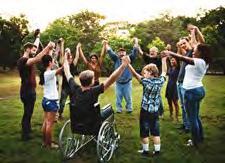

Find out more: www.compassionatecommunitiesuk.com or email info@compassionatecommunitiesuk.co.uk

Six pillars of health
The six pillars are food, movement, relationships, environments in which we live, community and healthy minds.
We thrive on love, laughter, and friendship. Our innate need for social connection is built into hundreds of millions of years of evolution and imbues everything we do. Yet this basic information is not part of the everyday practice of medicine. So why not use this free compassionate treasure we all possess to help lead healthy lives?
The main emphasis of the Six Pillars training combines good social relationships with low-cost ways to improve health. After taking this course, participants will be able to set up a Six Pillars training group, understanding that the problems and the solutions for good health can be found in the group rather than through a professional. The secret to health is found in a sense of belonging that happens with the friendships that develop along the way.
The impact is dramatic, supercharging efforts to get healthy by making the best use of making friends. Contact us to find out more.
Our workshops introduces the Six Pillars, how they are being utilised in communities around the world and how to get them started.

Find out more: www.compassionatecommunitiesuk.com or email info@compassionatecommunitiesuk.co.uk

Think tank series
Our Think Tank Series is designed to bring together a group of interested people to have a discussion around challenging areas, sharing new thinking and best practice from around the world. The aim is to test thinking and problem solve together
Our current series includes:-
Clinical Leaders
Palliative Medicine Consultants
Chief Executives
Quality, Audit and Impact
If there is a topic you would like to have a session on please contact emmahodges@compassionate-communitiesuk.co.uk

Find out more: www.compassionatecommunitiesuk.com or email info@compassionatecommunitiesuk.co.uk

Awards
In addition to the range of learning opportunities Compassionate Communities UK offer. We also accredited several areas of practice: -
Compassionate City Charter - this charter status is available to places of any size that show commitment and achievement against the 13 standards within the charter. To find out more, view examples here.
Compassionate Workplace - this award involves a baseline assessment and, where necessary, an improvement plan demonstrating a commitment to human workplace culture, practices, and development
Compassionate Organisation - this award builds on the Compassionate Workplace award and adds to the success criteria of compassion in its external environment as part of its community.


Membership
Become a member of Compassionate Communities UK and be part of a global movement of social change agents.
Join a collective of like-minded people from UK and around the world on our mission to improve health through compassion.
Membership benefits include:
Free participation in a range of webinars and community of practice groups
20% discount on training programs (unless using a third-party provider) Regular CC-UK updates
Find out more: www.compassionatecommunitiesuk.com or email info@compassionatecommunitiesuk.co.uk
Prices start from £20 and vary on size and type of organisation









